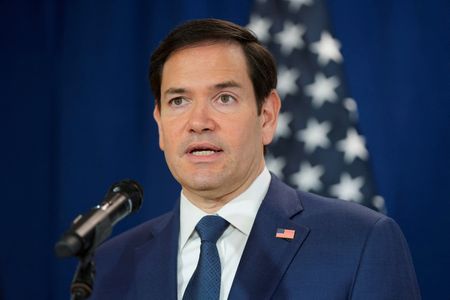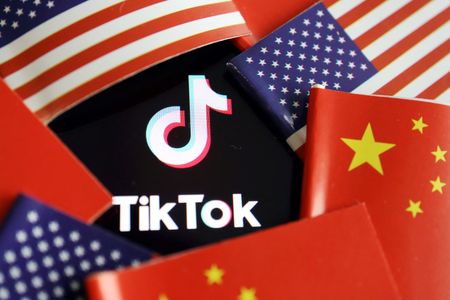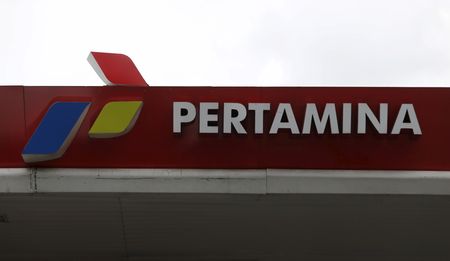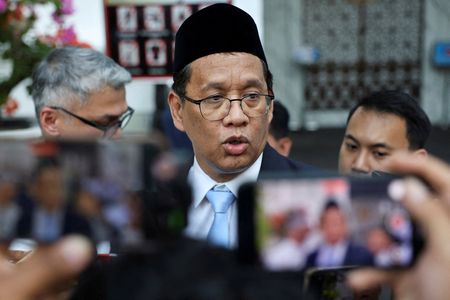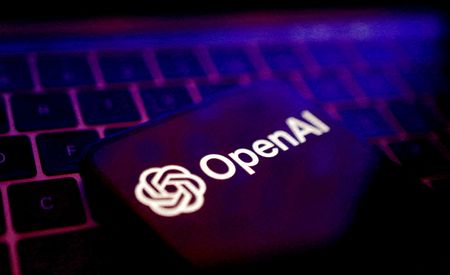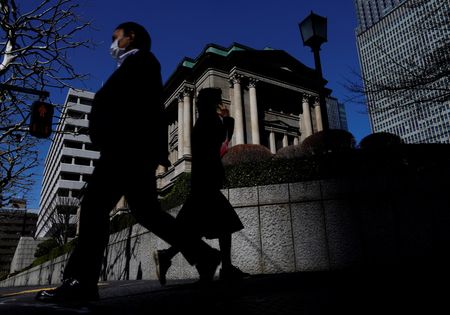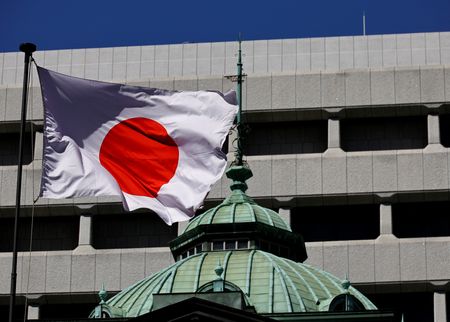By Simon Lewis and Michael Martina
SAN SALVADOR/WASHINGTON (Reuters) -U.S. Secretary of State Marco Rubio on Monday welcomed Panama’s decision to let its participation in China’s global infrastructure plan expire, calling the move “a great step forward” for its ties with the United States.
Any move by Panama to distance itself from Chinese President Xi Jinping’s signature Belt and Road Initiative is a win for Washington, which has argued that Beijing uses the scheme for “debt trap diplomacy” to cement its global influence.
Rubio this week made his first overseas trip as the top U.S. diplomat under President Donald Trump to Panama, a close U.S. partner in Latin America, and pressured the country over its ties with China.
After talks with Rubio, Panama’s President Jose Raul Mulino said his country’s broad agreement to contribute to the Chinese initiative will not be renewed, and could be terminated early. He said the deal was set to expire in two to three years, but did not elaborate.
“Yesterday’s announcement by President @JoseRaulMulino that Panama will allow its participation in the CCP’s Belt and Road Initiative to expire is a great step forward for U.S.-Panama relations, a free Panama Canal, and another example of @POTUS leadership to protect our national security and deliver prosperity for the American people,” Rubio posted on X after departing the country.
Panama was the first Latin American country to officially endorse the Belt and Road Initiative in November 2017, five months after switching diplomatic ties to China from Taiwan, the democratically governed island Beijing claims as its territory.
China rejects Western criticism of the plan, saying well over 100 countries have joined it, and that it has boosted global development with new ports, bridges, railways and other projects.
Panama had made a “regrettable decision,” China’s U.N. Ambassador Fu Cong said.
“The smear campaign that is launched by the U.S. and some of the other Western countries on the Belt and Road Initiative is totally groundless,” Fu told a news conference in New York.
Still, the Chinese infrastructure plan has faced controversy, with some partner nations bemoaning the high cost of projects and struggling to repay loans. Italy withdrew from the initiative in 2023 under U.S. pressure over concerns about Beijing’s economic reach.
CANAL OPERATIONS
U.S. concerns have long extended to some Chinese companies’ operations near the Panama Canal, built by the United States in the early 20th century and handed over to Panama in 1999.
A Hong Kong-based firm operates two ports at both entrances of the waterway, while two Chinese state-owned firms are separately building a fourth bridge over one of the canal’s entrances.
The U.S. State Department said on Sunday that Rubio delivered a message from Trump that China’s presence there was a threat to the canal and a violation of the U.S.-Panama treaty.
After talks with Rubio, Mulino signaled a willingness to review the 25-year concession to Hong Kong-based CK Hutchison Holdings, renewed in 2021 for the operation of the two entrance ports, pending the results of an audit.
The contract has been targeted by U.S. lawmakers and the government as an example of China’s expansion in Panama, which they say goes against a neutrality treaty signed by both countries in 1977.
China’s Fu said allegations about Beijing’s control over the canal were “totally false” and that it had never interfered in canal affairs.
Rubio, speaking to reporters after landing in San Salvador on the next leg of his Latin American trip, called Mulino a friend to the United States, and Panama a strong partner and ally. He said his visit had achieved “potentially really good things.”
“We don’t want to have a hostile or negative relationship with Panama,” Rubio said.
Trump said later that he is scheduled to have a call with Panama officials on Friday.
Ryan Berg, director of the Americas Program at Washington’s Center for Strategic and International Studies, said the audit could provide a way to unwind the concessions if it shows the deal was marred by corruption.
“That provides more legal framework for Panama to wiggle out of the concessions and for Panama to reopen them such that an American company or a European company might come in and win the bid,” Berg said.
(Reporting by Michael Martina, Simon Lewis, Marianna Parraga, Jasper Ward, Susan Heavey and Michelle Nichols; Writing by Michael Martina, editing by Deepa Babington and Rosalba O’Brien)

